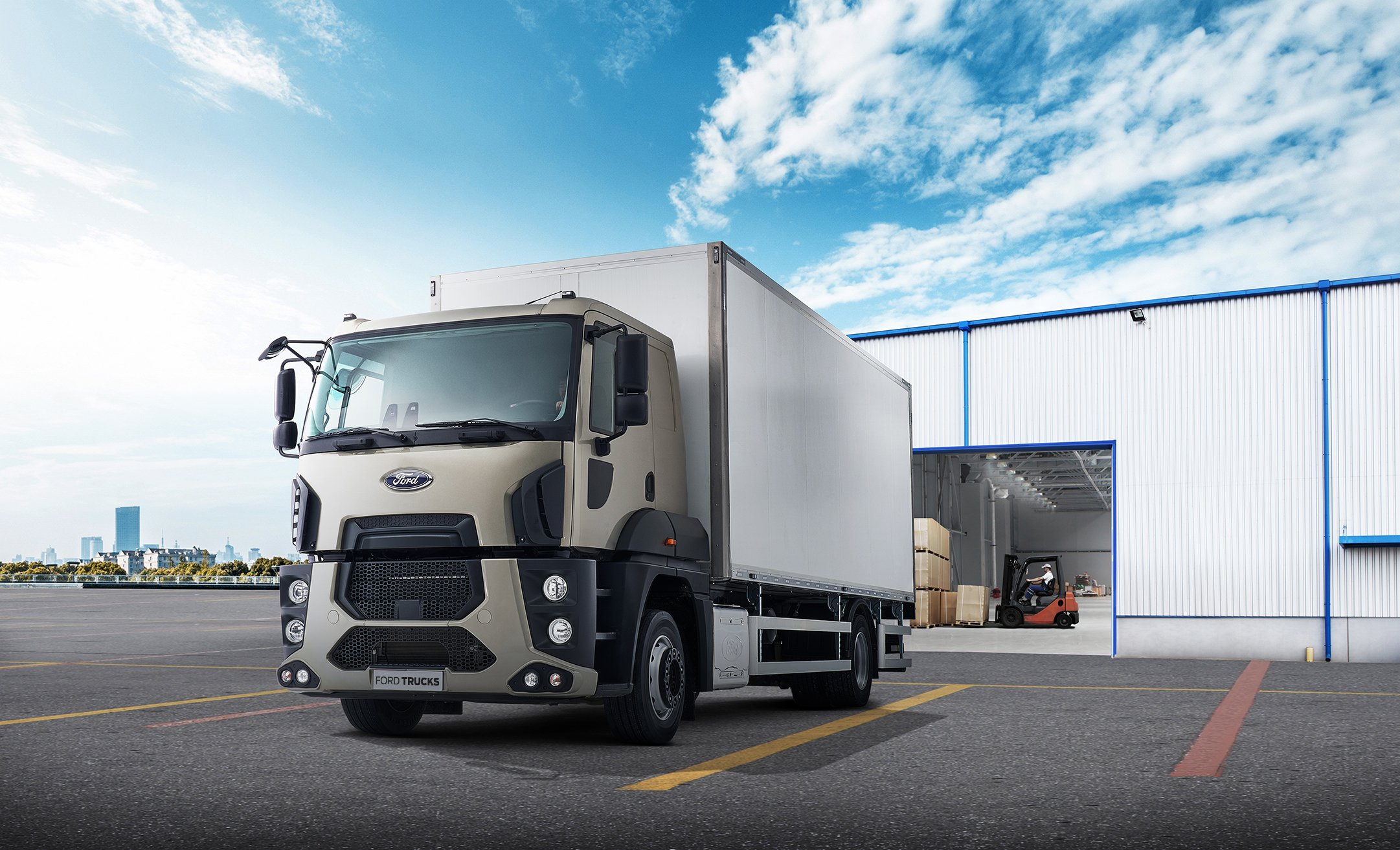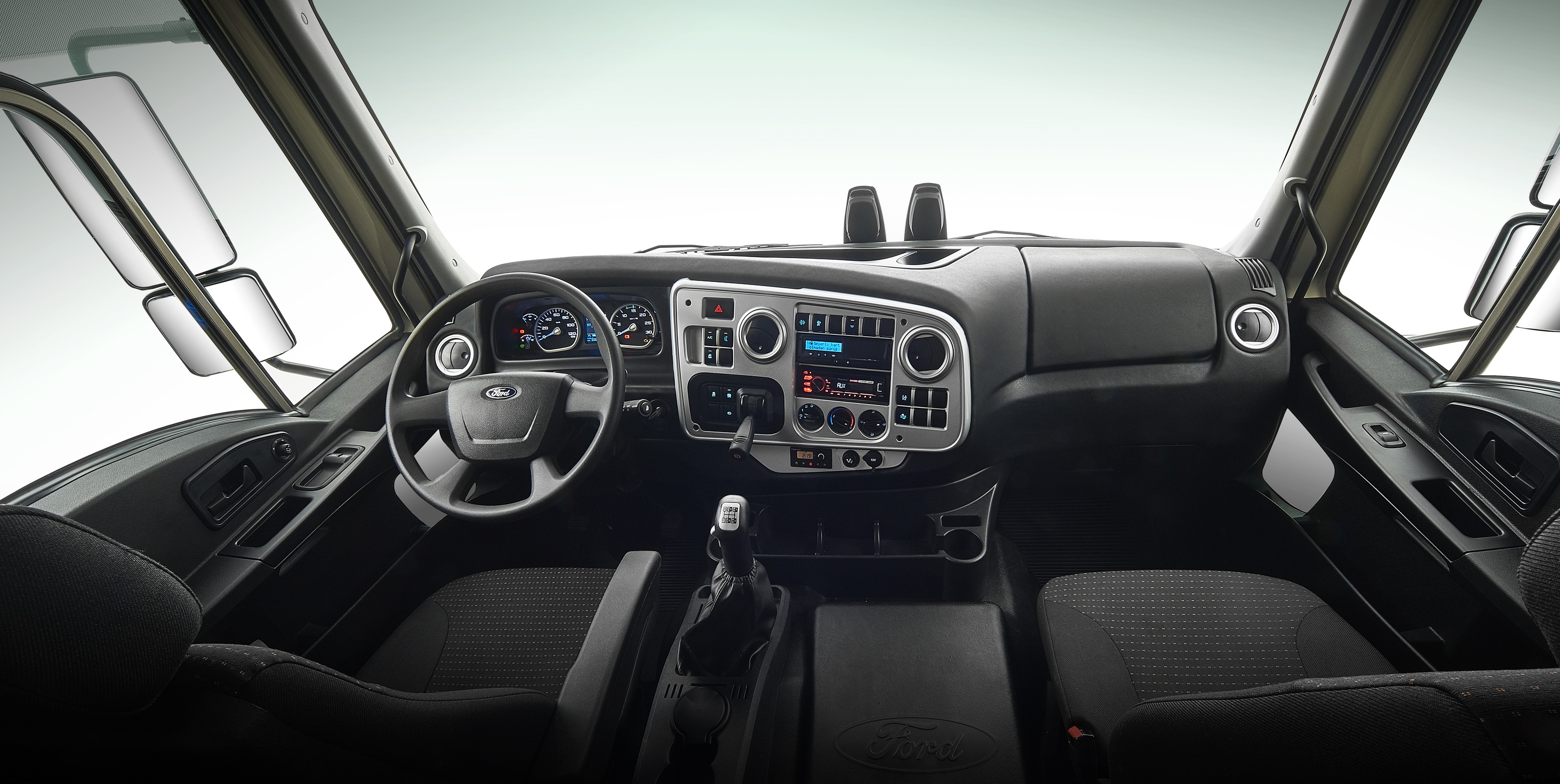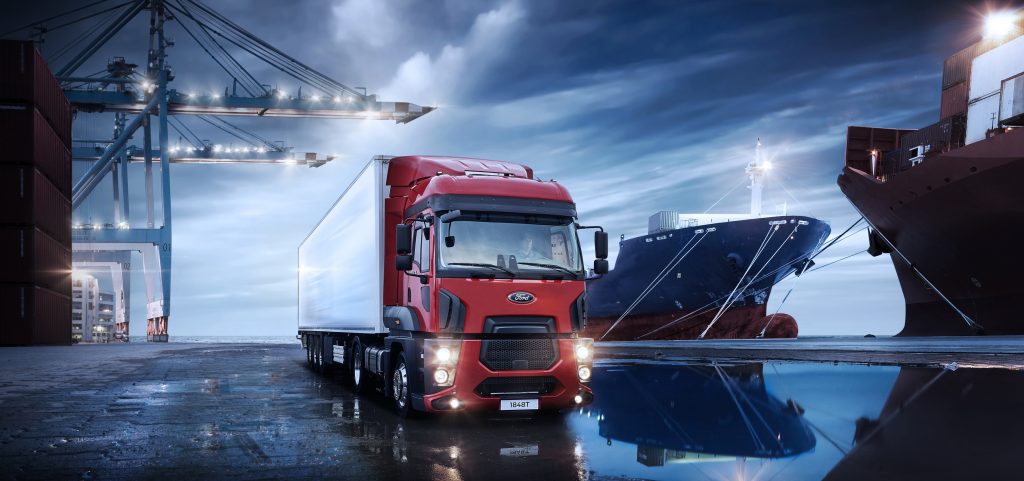The team of Logistics News ME spoke with the Ford Trucks division to learn more about the company’s growing trucking industry initiatives…
3 Biggest Leads In The Trucking Industry
The automotive industry is undergoing an environmental and technological transformation worldwide. One of the most essential items of this change is the industry’s energy needs. The hydrogen and electricity ecosystem is replacing fossil fuel production and distribution infrastructure. Sustainability efforts and regulations, especially in Europe, are accelerating this transformation. Additionally, one of the most important trends shaping the industry is electrification. Electric trucks are becoming more prevalent as manufacturers and companies invest in developing and deploying electric vehicles. Electric trucks have the potential to reduce emissions and operational costs, as well as improve efficiency and performance.
Self-driving trucks are also a hot topic in the heavy commercial industry. Autonomous trucks have the potential to improve safety, reduce labour costs, and increase efficiency. Ford Trucks is testing and developing L4 Highway Pilot autonomous driving technology. The trucking industry is also increasingly digitised with GPS, telematics, and remote diagnostics technologies. These technologies can help trucking companies optimise routes, track shipments, and improve fleet management efficiency. Technological progress enables trucks to establish real-time communication with other vehicles, infrastructure, and transportation management systems, enhancing efficiency and safety. Ford Trucks is also leading in transforming the industry to electric, connected, and autonomous vehicles.
Trucking For Logistics Companies
The trucking industry is critical to logistics companies as it provides a vital link in the supply chain for the transportation of goods. With trucks, many businesses could transport their products efficiently and effectively. Trucks are essential for transporting goods over short to medium distances, often more cost-effective than air or rail transportation. They are also critical for the final mile delivery of goods, as they can deliver directly to customers’ homes or businesses.

Digital Transformation
They are adopting advanced technologies like AI and machine learning to innovate and stay competitive in the transportation industry. By leveraging these technologies, they are improving their operations, products, and services and delivering more value to their customers. Additionally, they have invested in Level 4 Highway Pilot technology to automate mid-mile transportation.
With the Level 4 Highway Pilot, they are now developing technologies allowing trucks to deliver goods between logistical hubs, a process known as hub-to-hub. Furthermore, their remote vehicle control technology enables operators to remotely connect to the autonomous car and take over driving in the event of an unexpected event during autonomous driving or when human supervision is required. Correspondingly, they are also working to autonomic the movement of their vehicles within logistics bases with their autonomous back parking technology at the loading and unloading station, which brings us closer to the goal of fully autonomous driving. By using machine learning to predict when vehicles will require maintenance or repairs, which can help reduce downtime and improve vehicle performance – Ford Trucks AI and machine learning applications help fleets to optimise their operations and to provide better service to their customers.
Human Element
As automation plays an increasingly important role in the trucking industry, they are taking steps to safeguard the human element and ensure that drivers remain integral to the transportation ecosystem. Focusing on driver assistance technologies, training supports, and collaboration, they protect the human element and ensure that drivers stay safe, productive, and valued transportation industry members.
Logistics Companies And Ford Trucks
Developing long-term collaborations where they create value with the business partners is precious. As Ford Trucks their primary goal is to provide efficiency and contribution to their customers’ operations. Expressing their vision of ‘creating value with the most efficient transportation solutions’ with a purpose as ‘the road mate who cares about customers and helps their businesses thrive.’
Ford Trucks they have a reputation for building reliable, durable trucks that withstand heavy use and harsh conditions. This makes them a popular choice for businesses that rely on their vehicles to operate efficiently and reliably. And the extensive network of dealerships and service centres worldwide can provide logistics companies with the support they need to keep their vehicles running smoothly and increase uptime.

Sustainability
The primary goal at Ford Trucks is to provide their customers with sustainable transportation solutions that use alternative propulsion technologies. Electrification, followed by hydrogen technology, is one of the top priorities. They have many promising technological talents and capabilities, and the work is progressing quickly and successfully. In addition, they support ACEA’s pledge that by 2040, all new trucks sold shall be fossil-fuel-free. They are committed to reducing environmental impact and promoting sustainability in operations, products, and services.
Their sustainability efforts start with their vehicles and production process. Ford Trucks is working to develop a range of electric trucks that emit no greenhouse gases and have lower operating costs than traditional diesel-powered trucks. Furthermore, they have also grown more fuel-efficient diesel engines, which can help reduce emissions and operating costs. Electric engines are designed to provide better fuel economy and lower emissions.
Sustainable Manufacturing is at the heart of their business. They have implemented sustainable manufacturing practices, such as reducing waste, water use, and energy consumption. They also focused on recycling and reusing materials to minimise waste and conserve resources. As a result of the audits conducted by the Zero Waste Regulation, their Eskişehir Plant received the ‘Zero Waste Basic Level Certificate’ within the scope of effective zero waste management. They reuse water with the help of closed-cycle cooling towers.
As Ford Trucks, they have started an incredible transformation journey with zero emission, connected, and autonomous technologies with the ‘Generation F movement’. This transformation movement includes technologies that serve different needs, from zero-emission vehicles to connected and autonomous vehicles. In this direction, they introduced the 100% domestic electric truck, designed and manufactured entirely in Turkiye, at the 2022 International Commercial Vehicle Fair (IAA) held in Hannover in 2022. The zero-emission, quiet, efficient new-generation truck also features connected and innovative technologies.

Foresight
The trucking industry is undergoing significant changes because of technological advancements, changing consumer preferences, and evolving regulatory environments.
Zero Emission Vehicles are the primary trend that is shaping the future of the heavy commercial industry. Battery-electric and hydrogen-fuelled trucks are becoming more prevalent as companies look to reduce emissions and improve sustainability in the transportation industry.
The development of autonomous trucking technology is also expected to transform the trucking industry, reducing the need for human drivers and improving safety and efficiency. Last but not least, companies are increasingly focused on sustainability and reducing their environmental impact, driving the adoption of alternative fuels, electrification, and other sustainable practices in the industry.




